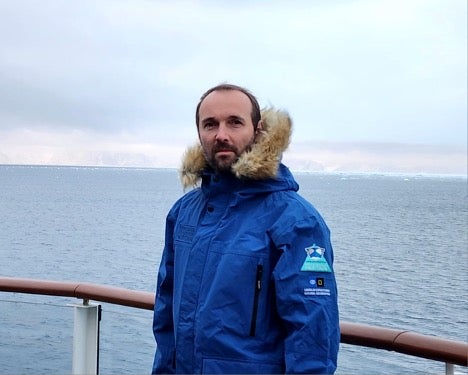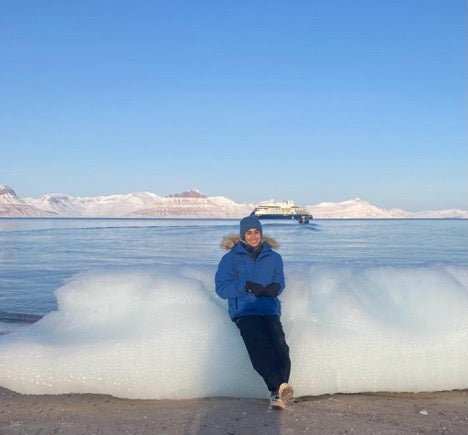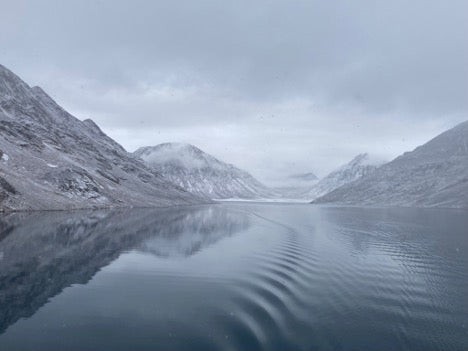
Boise State Assistant Professor of chemistry Konrad Meister and biomolecular science graduate student Rosemary Eufemio recently joined the team aboard the National Geographic Endurance to perform research in Iceland and East Greenland.
The team was selected through the Visiting Scientist Program and on their expedition, Meister and Eufemio delved into the world of biological ice-nucleating particles in the Arctic. These tiny particules have a profound impact on everything from atmospheric processes to the survival of freeze-tolerant organisms.

Aboard the National Geographic Endurance, the Boise State research team collected water samples from remote oceanic regions, allowing them to assess the abundance and diversity of these ice nucleators under the evolving conditions of the warming Arctic.
In return, the Science at Sea program enabled travelers to embark on journeys alongside the researchers, engage in talks about their discoveries and get hands-on with scientific activities like data collection.
Eufemio, a second year grad student who hails from Kodiak, Alaska especially enjoyed seeing musk oxen and a polar bear on the research expedition.
“The landscape was majestic and the northern lights were spectacular,” said Eufemio. “A memorable moment was collecting seawater samples off the coast of Greenland from the Zodiac for the first time. It was exciting to collaborate with the Expedition crew and take water samples among the icebergs and sea ice.”

Meister, a chemist specializing in biological antifreeze particularly enjoyed “the fantastic food,” which is not usually available during polar expeditions.
The ship also boasted a Science Hub, which was a space dedicated to sharing research with the passengers.

“I enjoyed sharing about our work, as everyone was genuinely curious about what we were doing and asked insightful questions,” said Eufemio.